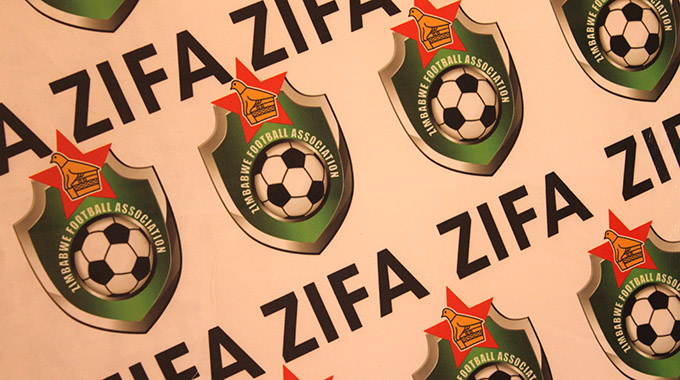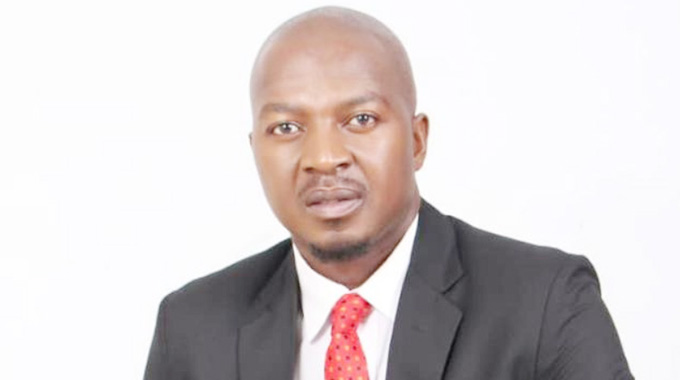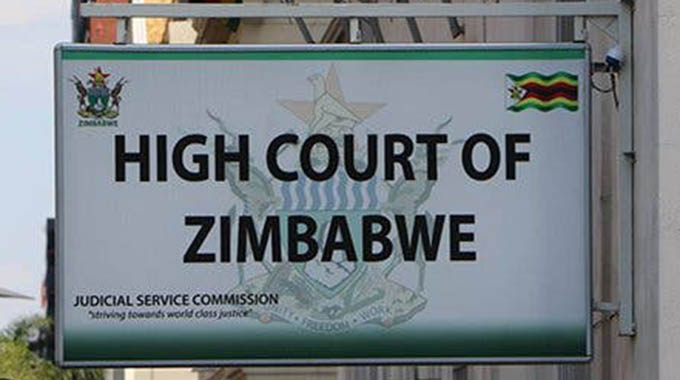Big Floyd, Digital, Akon, tragedy and triumph in the chase of the American Dream

Sharuko On Saturday
BIG Floyd — it had such a natural, if not beautiful, rhythm to it, like Big Ben, Big Sam, Big Manu, Big Joe, Big Boss, Big Rob, Big Mac, Big Mike.
Like Smokin’ Joe.
The stocky and powerful one whose relentless fighting style, always coming at his opponent, helped him become the first professional boxer to beat Muhammad Ali in the “Fight Of The Century”.
His real name was Joe Frazier.
Like Whispering Death.
The one whose smooth, and silky action, charging down the wicket effortlessly, hid the destructive force of his venomous deliveries, which transformed him into a nightmare for batsmen.
His real name was Michael Holding.
He was one of the enduring figures of the West Indies team of the ‘80s, the dominant force in world cricket, with their four fast bowlers operating like a terror unit, crushing defences, obliterating opponents.
That powerful bowling attack also featured Joel Garner, the Big Bird, standing at 2.03m, a giant of a man, the tallest fast bowler, at the time to ever play Test cricket.
His economy rate of just 3.09 runs per over is the best for a bowler, among those who bowled at least 1000 balls in ODI matches, and in the ICC Cricket World Cup final in 1979, just two years after arriving on the international stage, he was simply unplayable.
He took 5-39, in a winning cause, for the Windies against England and this included a devastating spell of five wickets for just four runs and, twice, he was on a hat-trick.
The Big Bird, just like Whispering Death, were part of a trailblazing Windies side which, for 15 years, didn’t lose a Test series in a domination of the game that as ruthless as it was emphatic.
To many black people across the world, that all-conquering Windies team came to represent more than just a national side, but a powerful vehicle that gave them back their pride.
Using a combination of both brute force, and amazing skills with the ball and the bat, they became the symbol of black people’s quest for respect, in a world largely hostile to their colour.
The Big Bird could have been Big Floyd — there is a striking resemblance in their dark features, their huge size, their big faces, their beautiful smiles that appeared to light up the occasion.
They shared a similar history – their folks were brought across the Atlantic from Africa as slaves at one time, or the other, during one of human kind’s worst atrocities in which a whole generation of individuals were transformed from people into objects.
Living objects that could be captured, subdued, shipped across the ocean where they were sold to prime bidders to be used as human tools to work on huge plantations for the financial benefits of their white masters.
A people cursed, by the dark colour of their skin, to live and die while being exploited, not as humans but as property, for over four centuries in an unprecedented scale of both brutality and inhumanity.
Even the English language seems to condemn us — the black market is the illegal one, a black day comes when something tragic happens, when you don’t pay your bank loan, you are blacklisted, when there is a power outage, it’s a blackout.
Witches are said to use black magic, if you are troublesome, you are the black sheep of your family, if you want to con someone, by using privileged information to force him to pay you a certain amount, you are said to be blackmailing him.
We have to wear black at a funeral while we wear white at weddings.
That’s why I gave up playing pool because I began to question why the white ball is the one that always controls everything in pursuit of trying to sink the black ball and, when that happens, the game is over.
BEFORE HE BECAME BIG FLOYD, HE WAS GEORGE FLOYD
Before he became Big Floyd, he was George Floyd — a talented athlete, who excelled in American football and basketball, during his school days.
He even won a college basketball hoops scholarship, inspiring those growing up in poverty in Houston’s Cuney Homes housing project, like Eddy Barlow, that there was a way out of their nightmare.
“I’m a little younger than George, but it was exciting when I got to Yates and walked those same halls where he played,” Barlow, who is 38 now, told the website, www.undefeated.com.
“In basketball, he was a Dennis Rodman type, a blue-collar player. In football, whenever we’d go to a game and hear his name after he scored a touchdown, that was exciting because he represented us.
“George was idolised by young boys living in the projects because he was the first guy that many of us witnessed get an athletic scholarship where we grew up. He was one of my role models. He was one of us.’’
Last week, at the age of 46, Big Floyd died or, to be more appropriate, was killed.
The end, for him, came in savage fashion in what represented a later day form of public lynching of a black man by a white American policeman.
A throwback to a time, back in the years, when black people like Big Floyd and Big Bird could be killed, with impunity, across large parts of the United States, either by their slave masters or white supremacists.
Big Floyd’s killing has sparked huge protests, across the United States, with some even spilling around the world, in what has been an angry reaction to such senseless slaughter which, for the umpteenth time, throws the spotlight on the cancer of racism.
There have been huge protests in Kansas City, the largest city in Missouri, a state in the Midwestern part of the United States, with hundreds of protesters being arrested while some police officers have been injured.
Amid the exploding fury, and the deep divisions within their town, authorities in Kansas City have been turning to the power of sport to try and give people something to cheer their spirits.
After all, their city won the last major sporting event held in the United States, before the coronavirus pandemic brought everything to a halt, when the Kansas City Chiefs defeated the San Francisco 49ers to capture Super Bowl LIV in Miami in February.
After all, this is the 25th season of Major League Soccer and that means going down memory lane and remembering the stars who have illuminated this league.
Like Wayne Rooney, Kaka, David Beckham, Robbie Keane, Jermain Defoe, David Villa, Andrea Pirlo, Steven Gerrard, Didier Drogba, Frank Lampard, Ashley Cole, Bastian Schweinsteiger, Thierry Henry and, of course, Zlatan Ibrahimovic.
In Kansas City, it’s about remembering a dreadlocked forward, who arrived there, from Zimbabwe, in 1996 — carrying a bag of dribbling skills, a natural instinct of scoring goals, a fox-in-the-box with deceptive boyish looks which camouflaged his deadly killer instincts.
And, of course, the Digital Crawl once the celebrations started.
His name is Vitalis Takawira.
The man who scored the first MLS goal for the Kansas City Wizards, now called Sporting Kansas City, on April 13, 1996, at the Arrowhead Stadium, in the team’s inaugural match in the league, after a trademark sharp turn and deadly accuracy from inside the box.
There were 21 000 fans to witness the historic moment for the Wiz and, 20 years after Takawira left the club, they haven’t forgotten that defining moment.
“Digital Takawira wasted no time becoming a folk hero, bagging a brace, while long-time United States international and eventual MLS head coach Frank Klopas also found the score sheet as the Wiz prevailed 3-0 in a triumphant first chapter for the club,’’ the club noted recently.
And, two years later, on May 16, 1998, Takawira again wrote his name into the Wiz history books by becoming the club’s first player to score a hattrick in the MLS.
A FOLK HERO IN A COUNTRY PLAGUED BY DEEP DIVISIONS
Arch Bell, a writer for the authoritative ESPN, picked Takawira as his cult-hero during the 25 seasons of the league.
“It is only fitting that one of MLS’ early cult heroes was a man whose name was synonymous with the year,’’ Bell wrote. “The Digital Revolution began to take hold in 1996, and so it was only natural that the first year (of the) league boasted a player by that name — Digital Takawira of the Kansas City Wizards.
“However, the Zimbabwean striker hardly played at the 28.8K dial-up speed that was typical of the time. His quick movement and reactions in front of goal made him the perfect poacher in four seasons with the Wizards.
“Most memorable, though, was his goal-scoring celebration, the ‘Digital Crawl.’ After scoring, Takawira would get on all fours and start walking as teammates joined in, grabbing Takawira’s ankles and forming a human caterpillar.’’
Digital was born on September 24, 1972.
That was a year before Big Floyd was born on October 14, 1973.
They both chased the American Dream, confronted the hurdles which greet black people in the United States and, while Digital persisted in pursuing his professional soccer career, Big Floyd cut short his promising football, and basketball, career to pursue other interests.
Digital lives to this day, with so much ahead of him — watching his son, Vitalis Jnr, follow in his footsteps by playing for his motherland, possibly becoming a head coach, like his former teammate Frank Klopas, and helping more Zimbabwean footballers make the grade into the MLS.
Big Floyd lies lifeless today, consumed by a brutal system, which refuses to yield to the passage of time and the changing of the seasons.
He was just six months younger than Aliaume Damala Badara Thiam, the Senegalese-American singer known around the world as Akon.
The musician was born on April 16, 1973, in St Louis, Missouri, in the same state where Digital arrived in 1996, to start his American adventure.
Only 398 km separates St Louis and Kansas City.
Akon released a hit song, ‘Freedom,’’ in December 2008, chronicling the tough journey his parents travelled from Senegal to settle in the United States, and the endless pursuit of freedom by many black people chasing the American Dream.
He could have been singing about Big Floyd and, if we alter some of the words slightly, he could also have been signing about our Digital:
Everything he has, everything he owns
All the mistakes man, you already know
He wanna be free, he wanna be free
From Zimbabwe, Southern Africa
To Kansas City, Missouri
Thanks to coach Ron Newman
For giving him his chance and glory
He came down with his football boots
And a dream to change his world
In a free uplifting world
And that’s all he ever wanted
His wife came a little after
Gave birth to his son Vitalis Jnr
Then came all the pressure
Sometimes it made them fight one another
See, the pain would never last
They did the best with what they had
He knew the world was out for grabs
And he searched to find his
Success, success, success, success
Everything he has, everything he owns
All the mistakes man, you already know
He wanna be successful, he wanna be successful
As a kid he never knew
He’d have to come so far to make it through
So, he found himself skipping school
Cause the girls didn’t think he was cool
And because of that he didn’t care
Whether or not this was all a nightmare
He just wanted to be treated fair
Cause playing football was all he ever knew
Some were telling him to slow down
They said that’s what everybody did in this new town
Maybe, it was because they knew how he got down
A skinny foreigner from another town
Can you believe he is still around?
After so many hit the ground
And he ain’t gonna stop now
Until he gets that
Success, success, success, success
Everything he has, everything he owns
All my mistakes people already know
He just wanna be successful
In, a way, that’s all Big Floyd was looking for — freedom and success.
To God Be The Glory!
Peace to the GEPA Chief, the Big Fish, George Norton and all the Chakariboys in the struggle.
Come on United!!!!!!!!!!!!!!!!!!!!!!!!!
Bruno, Bruno, Bruno, Bruno, Bruno, Bruno!
Text Feedback — 0772545199
WhatsApp — 0772545199
Email — [email protected], [email protected]
You can also interact with me on Twitter — @Chakariboy, Facebook, Instagram — sharukor and every Wednesday night, at 9.45pm, when I join the legendary Charles “CNN’’ Mabika and producer Craig “Master Craig’’ Katsande on the ZBC television magazine programme, “Game Plan”








Comments